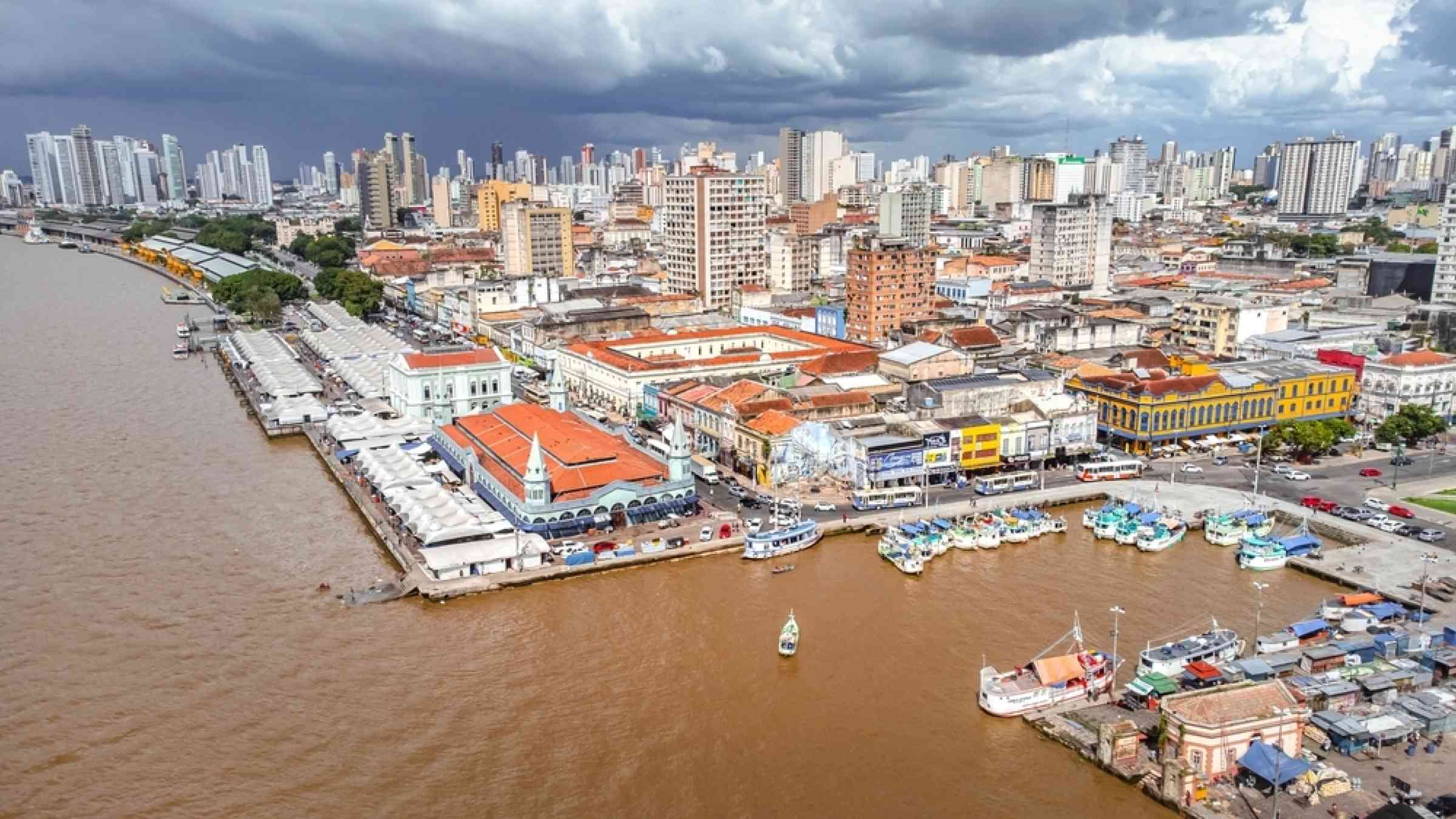On the road to COP30, Belem assesses capacities for inclusive and comprehensive climate and disaster risks management

The Brazilian Amazon region, where 80 per cent of the population lives in urban settlements, faced one of the worst droughts in more than a century in 2023, leaving river levels at historic lows, interrupting river transport and isolating riverside communities, as well as jeopardising access to drinking water for thousands of people. The reduction in rainfall has also affected local agriculture, aggravating food insecurity in several areas.
In Belém, the capital of the state of Pará, the climate crisis has contributed to extreme heat events and rising sea levels, threatening urban infrastructure and increasing the vulnerability of the poorest populations. The combination of droughts, forest fires and floods makes the situation increasingly challenging, requiring an urgent and coordinated response from local and national authorities to mitigate the impacts and adapt communities to the new climate challenges.
The city government of Belém joined the MCR2030 initiative in 2023, with the aim of accelerating the implementation of risk reduction actions in preparation for COP-30 in 2025, and with a focus on integrating the climate agenda and community resilience. A series of technical assistance activities for Belem's resilience are planned in 2024 and 2025, starting with virtual training in risk management, climate adaptation and urban resilience offered in February 2024 by UNDRR and ICLEI to officials and members of the Belem Climate Change Forum.
Belém identified critical areas to strengthen its resilience in July 2024, after validating the results of the diagnosis initiated in March 2024 with technical support from the United Nations Office for Disaster Risk Reduction (UNDRR) and ICLEI through the Making Cities Resilient 2030 (MCR2030) initiative. The diagnosis, based on the indicators in the Scorecard and its Addenda for Climate Resilience (developed by UNDRR and CAF) and for the Inclusion of People with Disabilities, identifies priority areas for action in favour of integrated and inclusive risk management in Belém. The workshop to present the results began the process of drawing up a Municipal Risk Reduction Plan, in line with the updating of the capital's Master Plan.
‘Contributing to building climate resilience and disasters in Belém is the responsibility of all departments and sectors of society,’ declared Edmilson Rodrigues, Mayor of Belém, at the opening of the workshop. Christiane Ferreira, Belém's Municipal Secretary for the Environment, added: ‘Our ambition is to guarantee the preparedness of Belém's population and its economic assets against disasters in a context of intensifying risks, particularly climate risks. We want resilience to become state policy.’
The assessment included input and participation from the Belém Mayor's Office, Semma, Segep, Sehab, Semob, Seurb, Sesan, Municipal Civil Defence, Funpapa, the Climate Change Forum, as well as guests from Censipam, the Federal Highway Police (PRF), Ufra, Ufpa, Unama, the Evandro Chagas Institute, the Emílio Goeldi Museum, the Mineral Resources Research Company (CPRM), Seaster, Pará Civil Defence, Demapa and Fopesmma.
The diagnosis also suggests specific actions that should be implemented to improve infrastructure, community preparedness, and institutional response to emergency situations. This effort is part of Belém's preparation for COP-30 in 2025, highlighting the need for coordinated action between the local government, civil society, and the private sector to build a safer and more resilient city.
‘Building an Amazonian model of resilient cities is of paramount importance,’ notes Nahuel Arenas, Head of the UNDRR Regional Office for the Americas and the Caribbean. ‘The MCR2030 initiative brings a methodology and a series of indicators to structure the reflection, but the inputs and final products are the result of the work of the municipal government and the people of Belém.’

